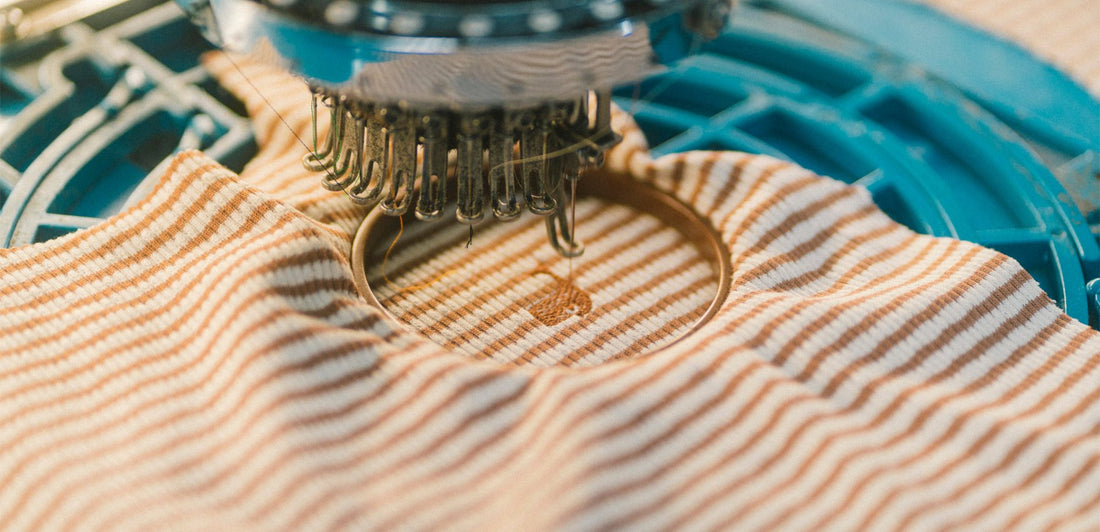You may be wondering about TWOTHIRDS’ unique approach to certification. For instance, why is it that we are a certified B Corp™ (meaning we meet strict environmental and social criteria) as well as being a climate neutral company, but our organic cotton does not seem to be GOTS certified?
The answer lies in the meaning of GOTS as well as the complicated nature of fashion supply chains! GOTS itself is one of the most well-known certificates in the fashion industry. You have likely seen it plastered all over sustainable fashion websites, and even on the sites of big corporations who are trying to look better in the eyes of their customers. In this piece, we answer all your doubts about GOTS, while explaining our position.
What Is GOTS / The Global Organic Textile Standard?
Essentially, the Global Organic Textile Standard (GOTS) sets a benchmark for a lower-impact form of material production. It’s a certifying standard that ensures organic standards are met and adhered to. A common misconception is that GOTS always and only applies to the fabric itself. In reality, GOTS certification starts after the cotton is grown and harvested, meaning that it is not responsible for certifying raw materials. Though GOTS certification requires the use of organic materials - like organic cotton - it really applies to the processes after cultivation, by making sure each merchant along the supply chain is certified. Therefore: if a product is GOTS certified, the raw material is organic, but there can also be organic content in products that are not GOTS certified.
For a product to be awarded GOTS certification, the factory that made it must also be GOTS certified. This would mean that the wet processes (dyeing, washing, sizing, wastewater treatment) take the environment into consideration. The manufacturing of GOTS goods also has to avoid heavy-metals.
Perhaps what makes GOTS certification so well-respected, is that it has been agreed between four different nations / organisations spread over 3 continents. This global outlook allows a fair and rigorous assessment of the organic content and processing of textiles. It has been in existence since 2006, also lending it historical weight. Many consider GOTS to be the GOAT of the organic movement!
It’s also pretty cool to consider what GOTS weeds out of the textile system. GOTS products must not contain:
- Conventional cotton
- Virgin polyester
- Silver
- Chromium
- Nickel
- Carbon
- Asbestos
- Conventional Angora hair
- Chlorinated plastics
Source: theecohub.
TWOTHIRDS’s Position On GOTS
If GOTS is so good, why hasn’t TWOTHIRDS got on board? The truth is, we have! In the majority of cases, our organic cotton and our factories are GOTS certified. However, in order to actually communicate that confidently, we would need to make sure our entire supply chain is GOTS certifiable, which would be an extraordinary undertaking, steering us away from other sustainability objectives.
This is what we say in our FAQs:
“Nearly all our products are produced according to the Oeko-Tex 100 standard, thereby guaranteeing that our garments are free of harmful chemicals. Furthermore, by producing in Europe, manufacturing is done under the REACH regulation, where harmful chemical use is restricted in European production facilities. Furthermore, most suppliers we are using have several other certifications that restrict and coordinate the use of chemicals in the textile industry, such as GOTS or bluesign. Most of our factories (except some very small family-owned businesses, where the cost of certification may outweigh the benefits) produce according to those standards.
For the fabrics that can be certified, we mainly use organic or GOTS certification, and for the production facilities like Oeko-Tex 100 standard or above. However, certification is not a priority for us as we know that there is no perfect fit.”
Why is there no “perfect fit”? Because some of the most sustainable fabrics we use are not available for certification or considered organic, because they are made of recycled materials or raw materials like wood (such as TENCEL™ Lyocell, LENZING™ ECOVERO™ Viscose and more).
Rather than restricting ourselves to GOTS criteria, we take an expansive and diverse approach to materials. That’s why you’ll find explanations of each material involved in a garment at the bottom of every product page.
So How Do We Know A Material Is Really Organic?
Answer: Transaction Certificates. When it comes to purchasing fabrics, we expect a range of certification standards. For organic materials, this can be GOTS or Organic Content Standard (OCS). For recycled materials (of which we now use a great deal of), there are further standards involved like Recycled Content Standard (RCS) or Global Recycled Standard (GRS), where transaction certificates are also key.
Our sustainability and supply chain managers work directly with suppliers who provide these transaction certificates. This gives us a guarantee that, when purchasing materials, they are what they are stated to be. Transaction certificates like the ones provided by OCS and GOTS allow us to state with extra confidence that the materials we use have come from organic origins and were manufactured in the right way.








